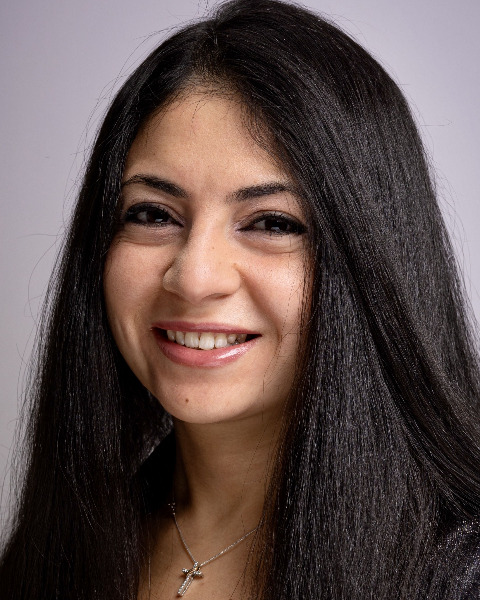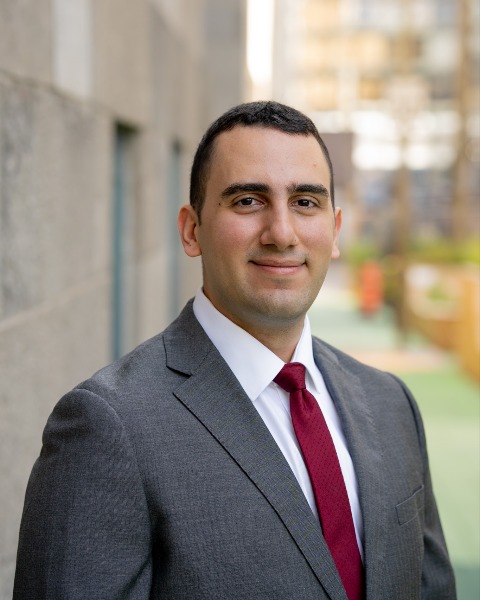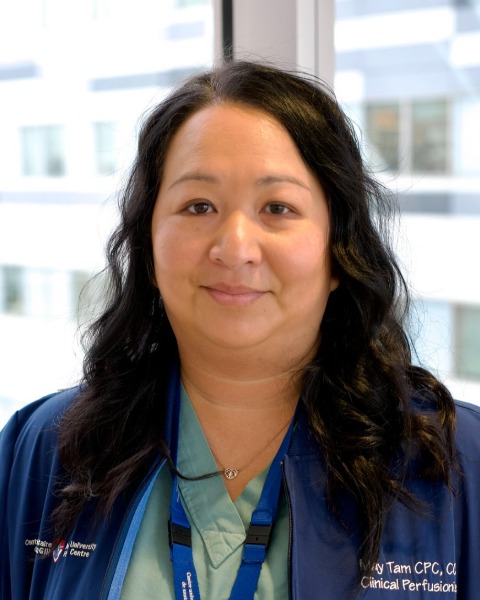Cardiac Surgery
Education
Trainee
Canadian Society of Cardiac Surgeons (CSCS)
155 - SURGICAL SYMPHONY: TEACHING AND TEAMWORK IN THE CARDIAC SURGERY OPERATING ROOM
-

Marina Ibrahim, MD, MEd, FRCSC (she/her/hers)
Cardiac Surgeon
Montreal Heart Institute
University of Montreal -
KL
Kevin Lachapelle, MDCM, FACS, FRCPSC
Cardiac surgeon
Hôpital Royal Victoria
McGill -

Naila Benchelabi, MD (she/her/hers)
Cardiac Surgery Resident
McGill University -

Elie Fadel, MD(c)
Medical Student
McGill University -

Marina Ibrahim, MD, MEd, FRCSC (she/her/hers)
Cardiac Surgeon
Montreal Heart Institute
University of Montreal -
KL
Kevin Lachapelle, MDCM, FACS, FRCPSC
Cardiac surgeon
Hôpital Royal Victoria
McGill -

May Tam, CPC (she/her/hers)
Chief Clinical Perfusionist
McGill University Health Centre -

Naila Benchelabi, MD (she/her/hers)
Cardiac Surgery Resident
McGill University -

Elie Fadel, MD(c)
Medical Student
McGill University -

Marina Ibrahim, MD, MEd, FRCSC (she/her/hers)
Cardiac Surgeon
Montreal Heart Institute
University of Montreal -
KL
Kevin Lachapelle, MDCM, FACS, FRCPSC
Cardiac surgeon
Hôpital Royal Victoria
McGill -

May Tam, CPC (she/her/hers)
Chief Clinical Perfusionist
McGill University Health Centre -

Marina Ibrahim, MD, MEd, FRCSC (she/her/hers)
Cardiac Surgeon
Montreal Heart Institute
University of Montreal -

Naila Benchelabi, MD (she/her/hers)
Cardiac Surgery Resident
McGill University -

Elie Fadel, MD(c)
Medical Student
McGill University -

Naila Benchelabi, MD (she/her/hers)
Cardiac Surgery Resident
McGill University -

Elie Fadel, MD(c)
Medical Student
McGill University -

Naila Benchelabi, MD (she/her/hers)
Cardiac Surgery Resident
McGill University -

Elie Fadel, MD(c)
Medical Student
McGill University -

Jason Harley, MA, PhD (they/them/theirs)
Associate Professor
Department of Surgery, McGill University
McGill University -

Marina Ibrahim, MD, MEd, FRCSC (she/her/hers)
Cardiac Surgeon
Montreal Heart Institute
University of Montreal -
AA
Co-Chair(s)
Panelist(s)
Presenter(s)
Early Career(s)
Trainee(s)
Moderator(s)
Planning Committee Member(s)
Workshop Description: The cardiac surgery operating room (OR) is a dynamic, high-stakes learning environment where surgical expertise is developed through hands-on experience and mentorship. However, teaching in this setting presents unique challenges: balancing patient safety with trainee autonomy, adapting to evolving surgical techniques, and managing logistical constraints relating to intraoperative efficiency, interdisciplinary communication, and work-hour limitations. Moreover, with the advent of surgical simulation, an important reflection presents regarding best practices to adopt to help trainees gain relevant experience for their level of knowledge.
This workshop brings together a diverse and multidisciplinary panel, including cardiac surgeons, a cardiac surgery resident, a medical student, a cardiovascular perfusionist, and a surgical education expert, to explore effective strategies for teaching in this complex environment. Participants will engage in discussions on how various OR team members contribute to surgical education and how collaboration enhances learning outcomes.
Structured around three phases of the learning process - before, during, and after surgery - this session introduces practical approaches to optimize teaching and learning in the OR from a medical and nursing standpoint, and is relevant to participants from various levels of their career journey (academic surgeons, perfusionists, residents, and trainees).
Topics covered will include assessing trainees’ readiness, structuring intraoperative teaching, facilitating reflection and debriefing, and overcoming common barriers to mentorship. Additionally, the workshop will introduce the concept of emotional and self-regulation as an essential element to promote a supportive learning environment for everyone involved.
This workshop will serve as a forum for members of the Canadian cardiovascular community to share best practices, reflect on existing models, and explore innovative teaching methods. Faculty, trainees, and OR staff will have the opportunity to discuss what works and what doesn’t to meet the evolving needs of this specialty.
Learning Objectives:
- describe the contributions of various cardiac surgery team members, including trainees, in surgical education and the role of multidisciplinary collaboration in improving learning outcomes;
- implement best practices to help trainees (medical and perfusion students, junior and senior surgery residents) prepare before entering the cardiac surgery OR, perform during the OR, and facilitate multifaceted reflection and debriefing after the OR; and
- identify barriers to effective teaching in the cardiac surgery OR and acknowledge the importance of a supportive learning environment to overcome them.
